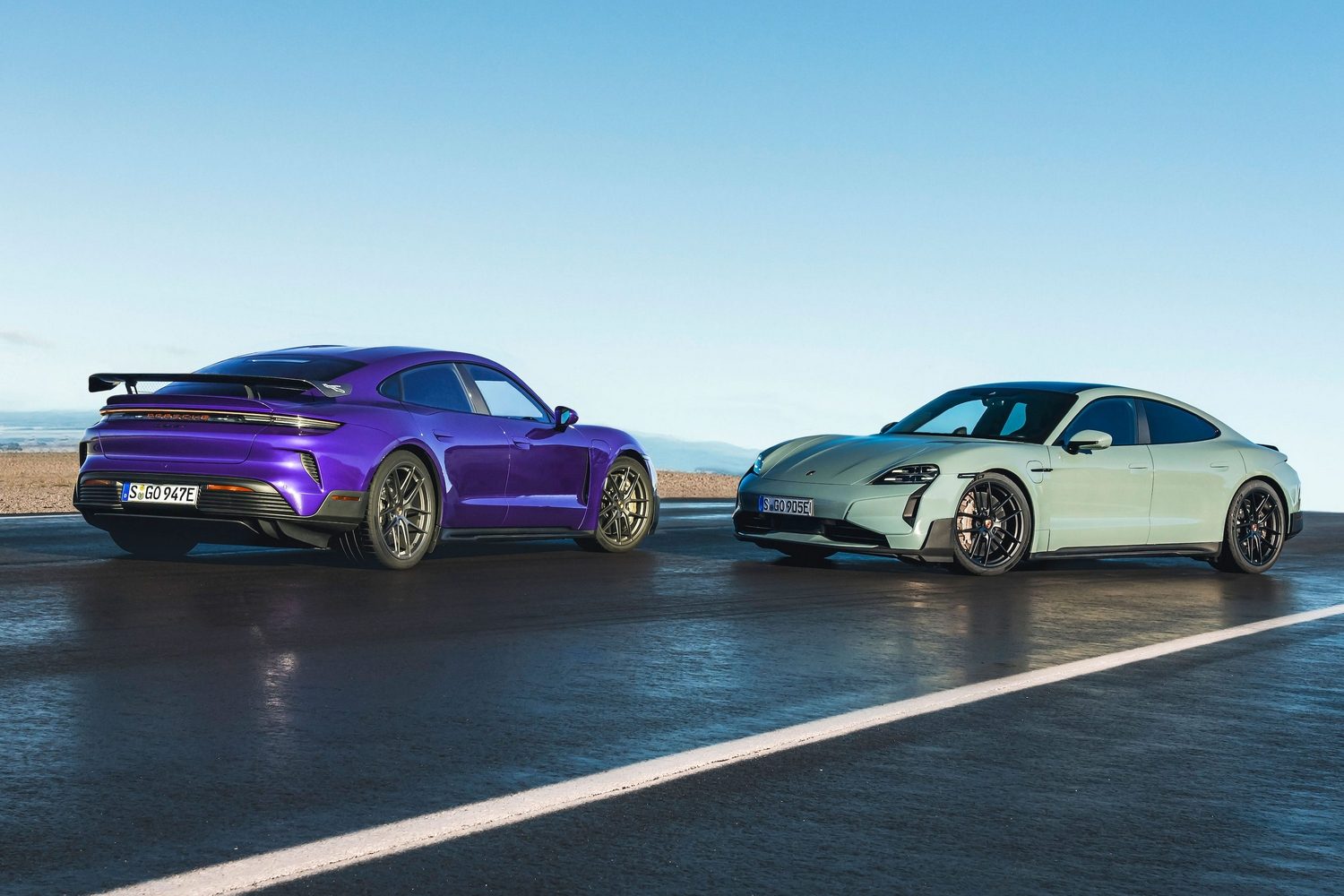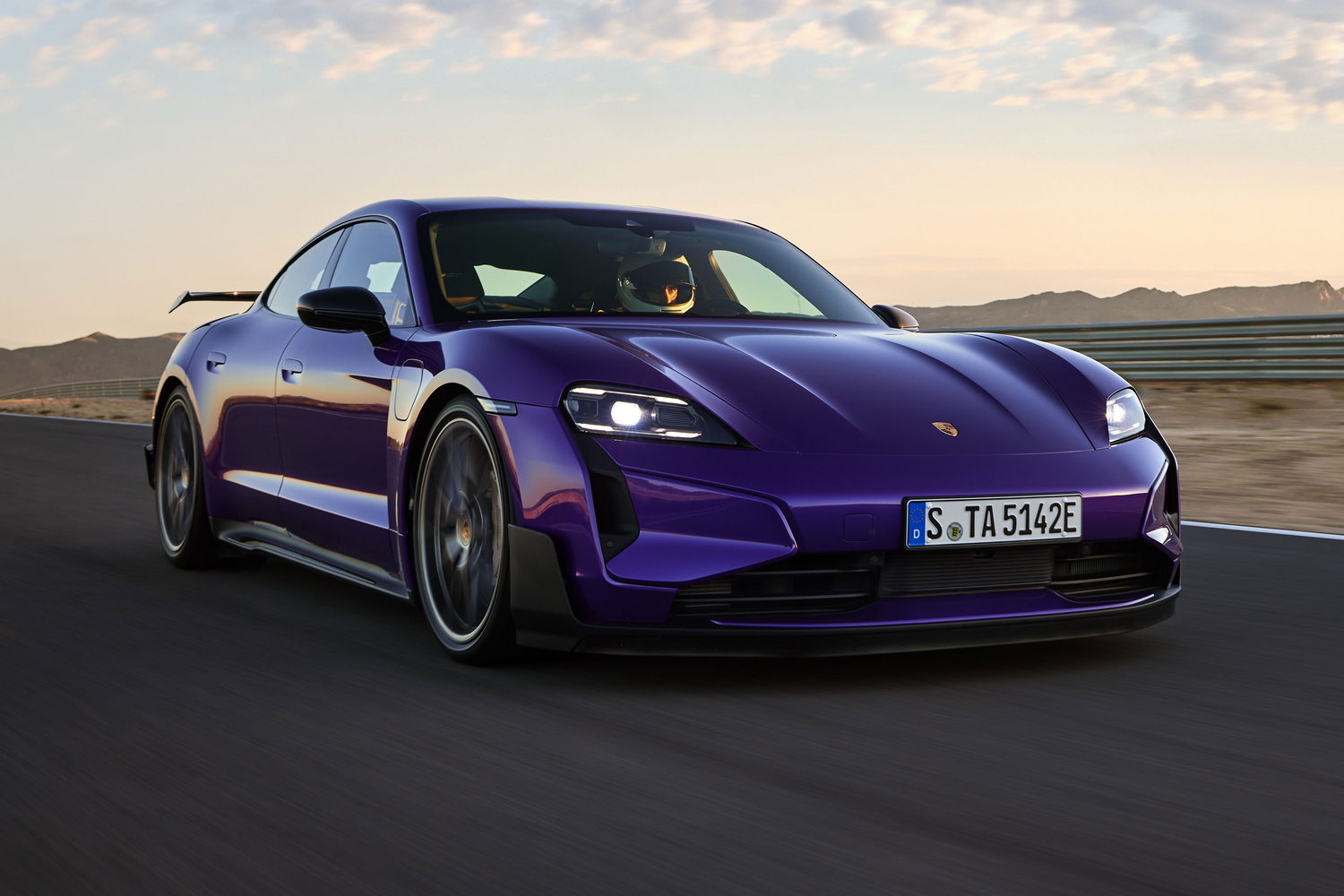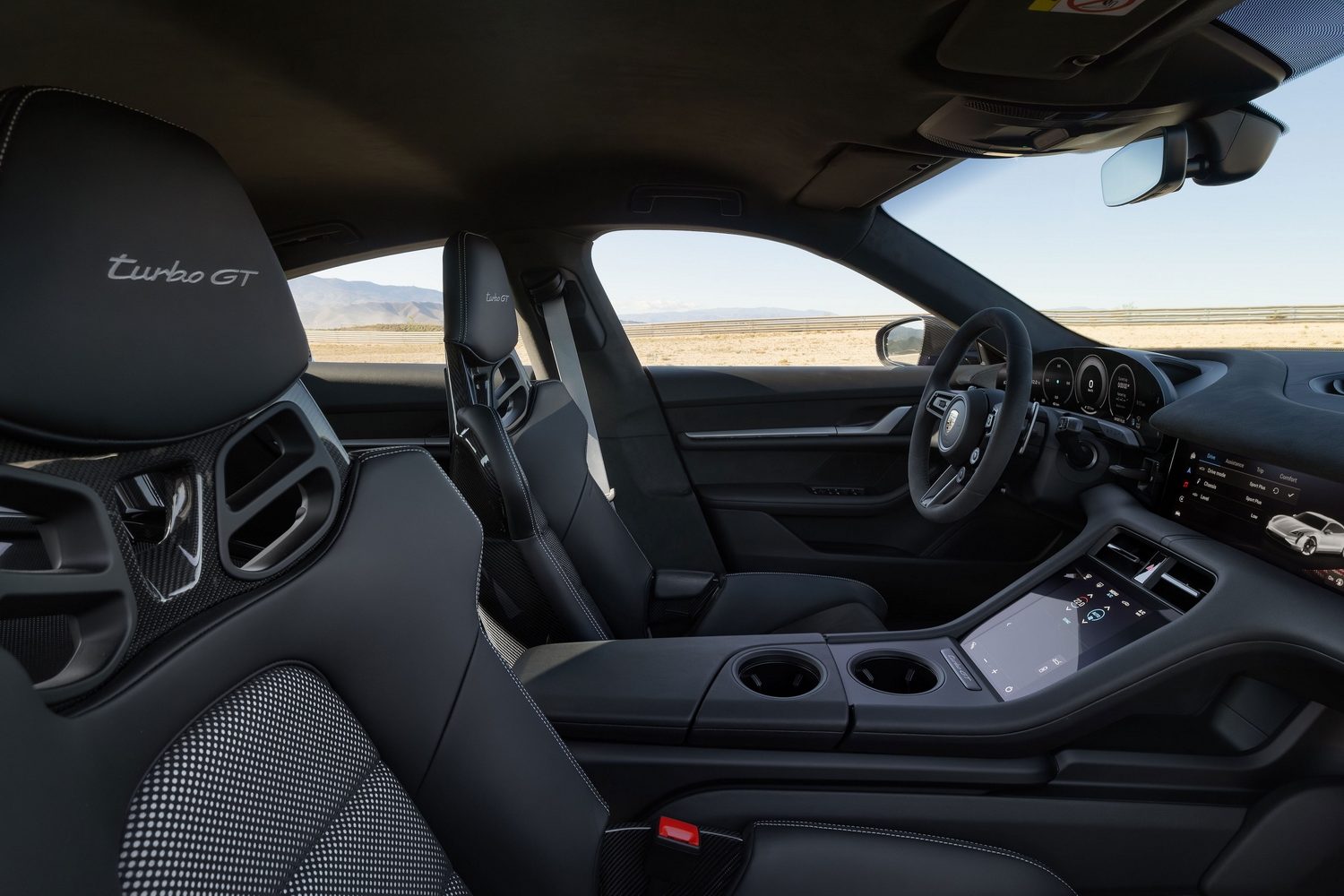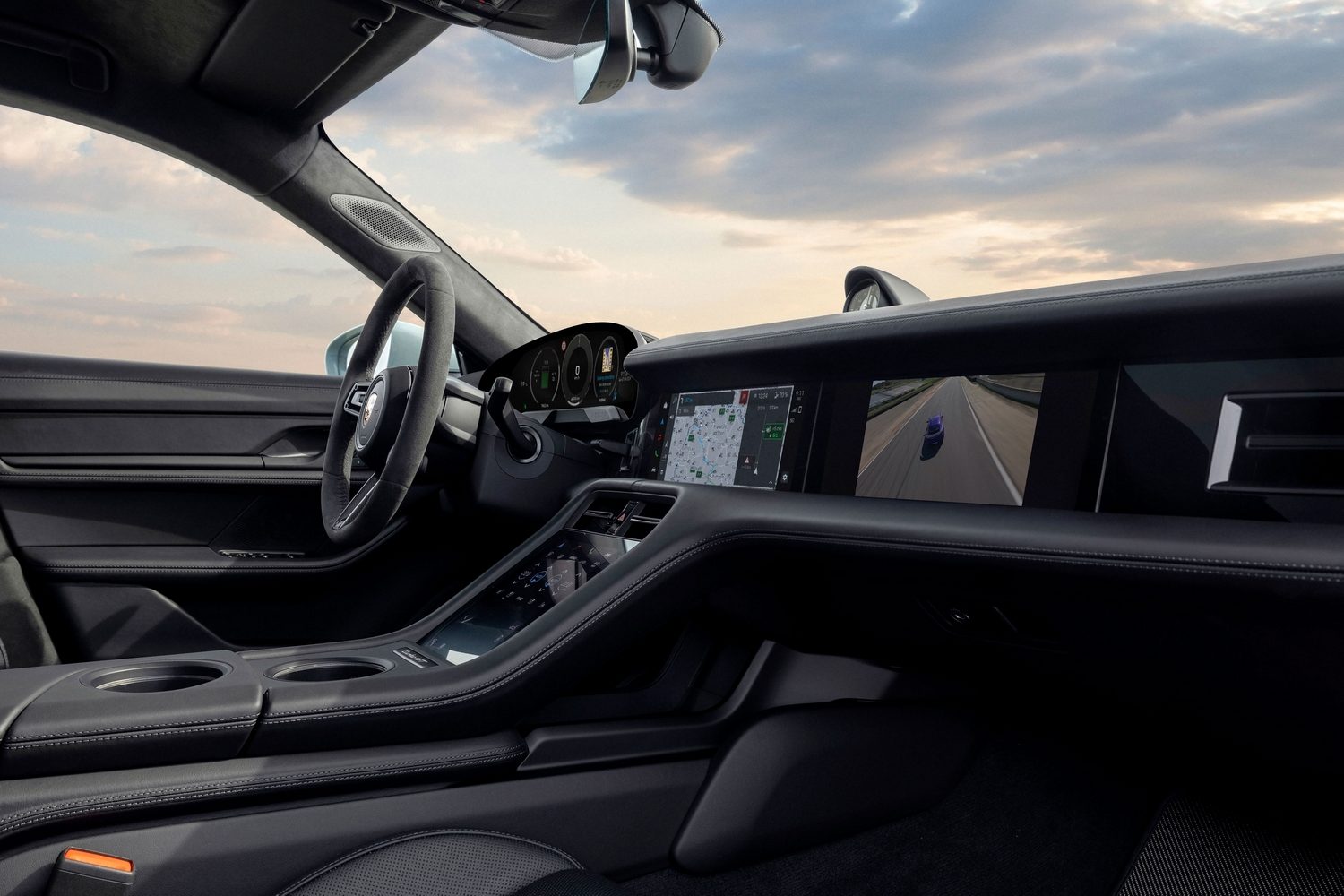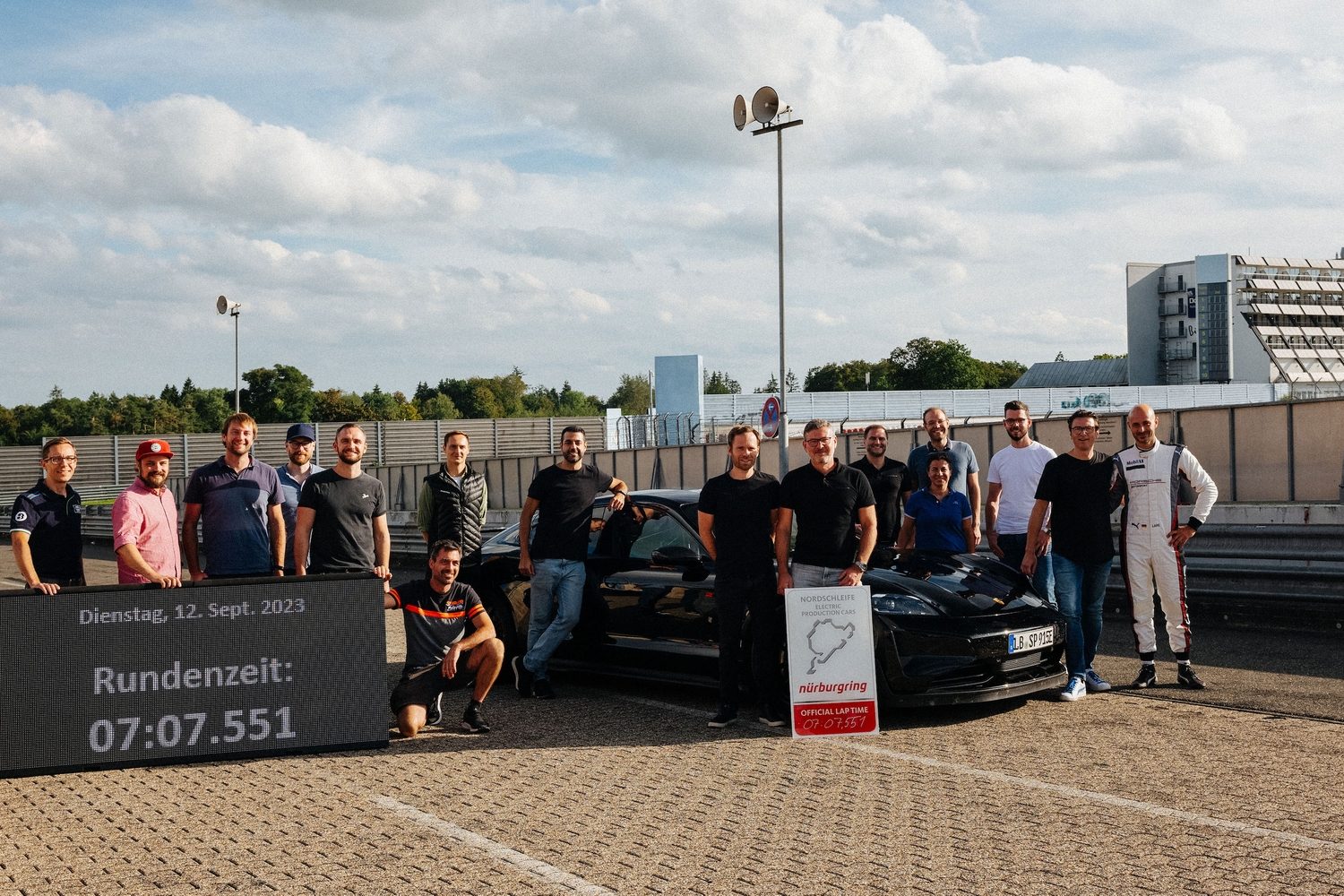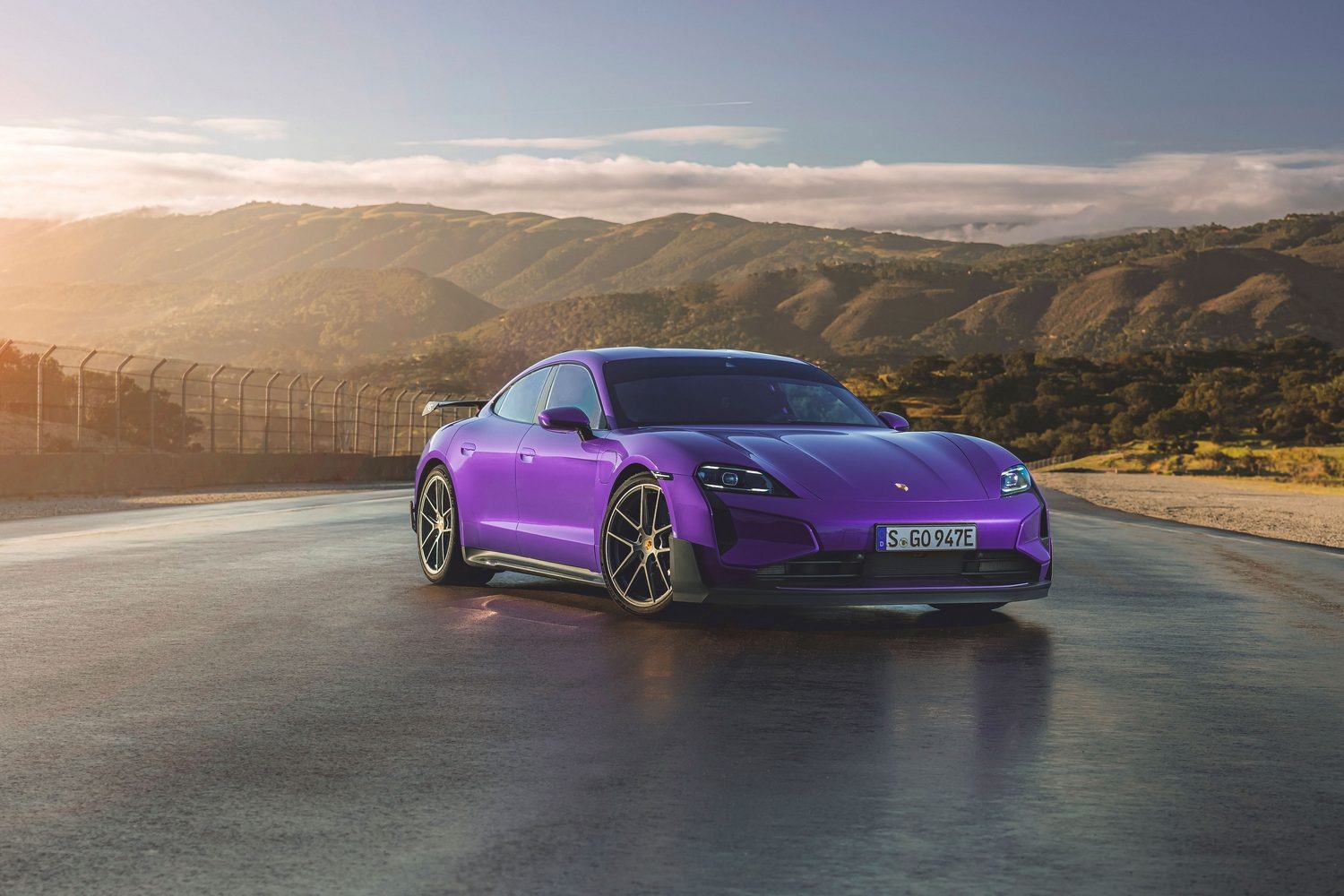Porsche has revealed its most powerful production car ever in the shape of the new, 1,108hp Taycan Turbo GT. With two electric motors, the car is already a lap record holder at two of the most savage racetracks on the planet.
Absolute power
Like the Cayenne Turbo GT, the new Porsche Taycan Turbo GT sits at the top of the model range, offering far greater power and performance than its siblings. Its two motors deliver 1,033hp to all four wheels when launch control is engaged, with 1,108hp available for two seconds of overboost.
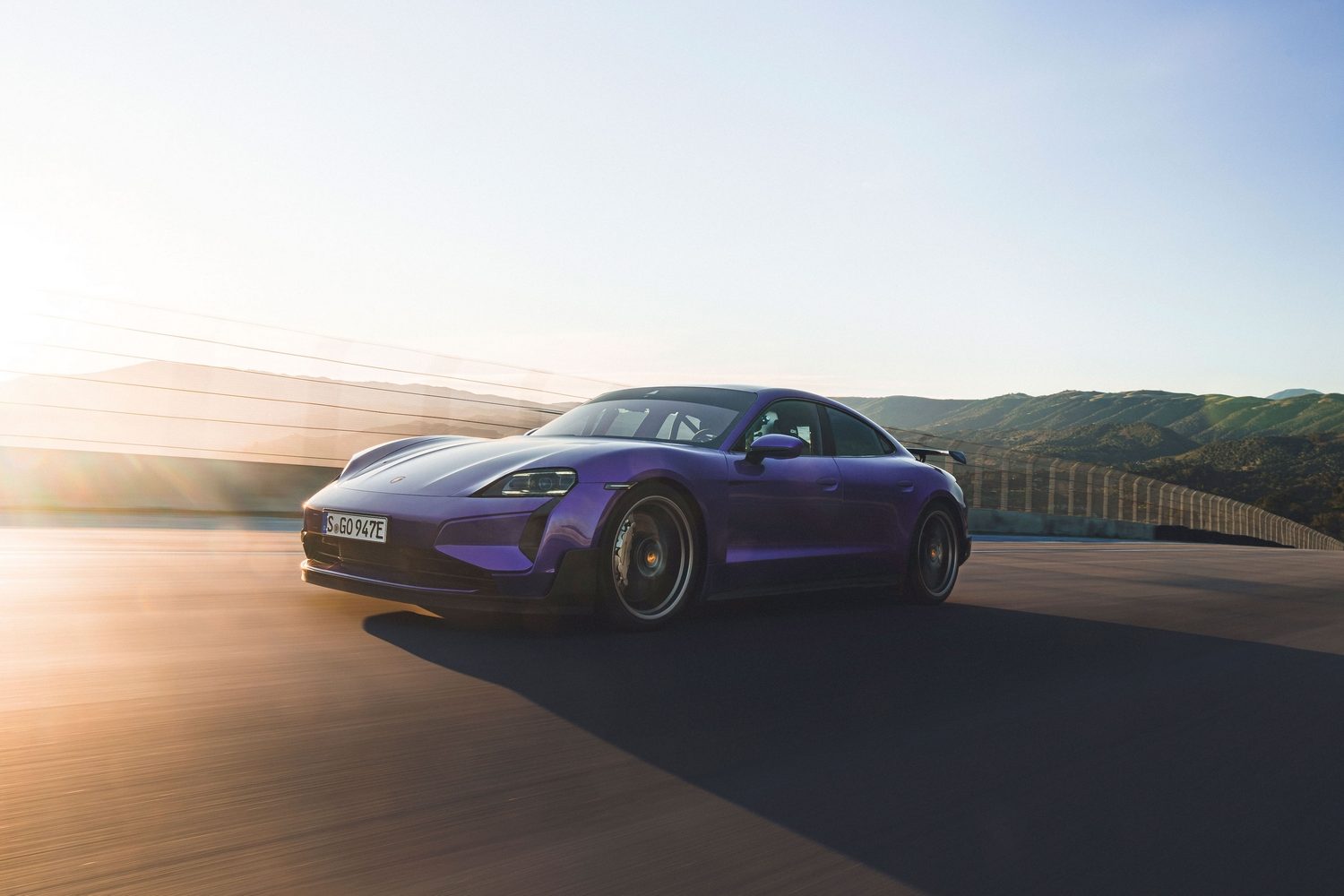
Two seconds might not sound like much, but it's almost enough to take the Taycan Turbo GT right the way from a standstill to 100km/h - a feat that takes just 2.2 seconds if you specify the lightweight Weissach package (2.3 seconds if you don't). It'll get from 0-200km/h in 6.4 seconds (6.6 seconds without the Weissach package), too, which is 1.3 seconds faster than the already rapid Taycan Turbo S. At top speed, this range-topping Taycan will manage more than 300km/h.
In part, this performance is down to a new rear electric motor and the pulse inverter, which allows a maximum current of 900 amps to be used on the rear axle. That's a 50 per cent increase compared with the Taycan Turbo S. What's more, there's a modified gearbox at the rear, allowing the car to transmit up to 1,340Nm of torque to the rear wheels. By way of comparison, that's almost three times the torque you get from a Porsche 911 GT3.
Weight saving
As well as beefing up the Taycan's power output, Porsche has put the Turbo GT on a bit of a diet. Carbon fibre is used on the B-pillars, the upper door mirror shells and the side skirt inlays, while full bucket seats, a lightweight luggage compartment and the omission of the soft-close function for the tailgate all cut the kilos.

As standard, the car comes with 21-inch lightweight forged wheels and special performance tyres, along with lightweight ceramic brakes. The headlights have even been downgraded to save weight, although customers can specify the more upmarket HD matrix LED lights if they so wish.
That all keeps the Turbo GT's weight to a minimum, but customers can take it a step further with the Weissach package, which gets even bolder with the weight shedding to create an electric track car. Instead of rear seats, the Weissach package provides a storage compartment clad in lightweight carbon, while the clock on the dash has also been removed. There's less sound-deadening, too, and there are no floor mats. The rear speakers are gone, as well, while there's bespoke glass in the windows. And instead of the usual two charge port doors, the Weissach does away with one and sheds the electric operating system for the other.
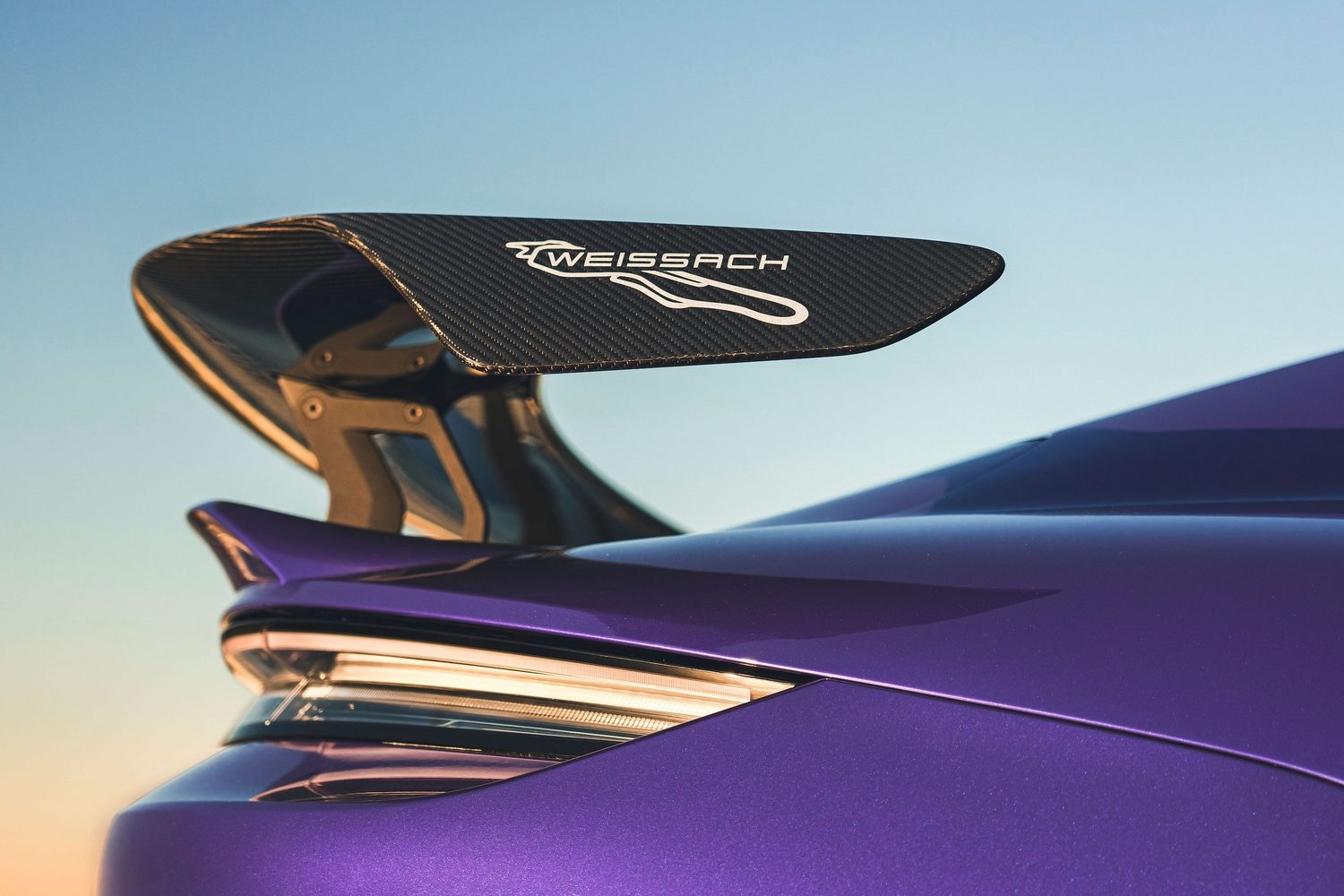
The result is a car that weighs around 70kg less than the standard Turbo GT (hence the slight performance uplift), and up to 75kg less than the Taycan Turbo S.
Light design
As well as reducing weight for added performance, the Weissach package also comes with some styling tweaks. Even the standard Turbo GT gets its own image, with a special front spoiler, an adaptive rear spoiler and coloured Porsche crests (rather than the grey of the Turbo S). The carbon-fibre components are on show, too, and there's black trim around the windows.

But the Weissach package adds more aerodynamic measures under the body and in the front diffuser, while there are Weissach logos on the rear wing. A striped wrap is also available, and there's a black decal set on offer.
Inside, meanwhile, the standard car gets lightweight bucket seats with a carbon-weave finish (although 18-way memory seats are a no-cost option) and a Turbo GT logo in the headrests. There's Race-Tex on the seat pads and the steering wheel, too. But again, the Weissach package changes things up, removing the clock and offering a full Race-Tex interior, as well as Weissach logos and contrast stitching.
Record breaker
Finally, Porsche has equipped the Turbo GT with a dynamics package as standard, including Porsche Active Ride suspension with model-specific tuning that's designed to balance wheel loads and keep the wheels in contact with the road. Combine that with the specially designed tyres and Porsche says the Turbo GT will "raise the bar in terms of driving dynamics."

As if to prove the point, the Turbo GT is already the world's fastest electric production car at two racetracks. On February 23, the car set a record at Raceway Laguna Seca, in California, with a lap time of just one minute and 27.87 seconds - the fastest of any electric production car. That followed a lap time of seven minutes and 7.55 seconds at the Nürburgring's Nordschleife circuit, which was a 26-second improvement on the time recorded by the Taycan Turbo S. On both occasions, Porsche development driver Lars Kern was behind the wheel.
"The two records in Laguna Seca and on the Nordschleife show what great track potential there is in the Taycan," said Porsche's Kevin Giek. "To prove your mettle on the track, it's not enough to simply have as much power as possible. The overall package of accelerating and braking, cornering grip, aerodynamics, stability and fine tuning has to be right. In the Taycan Turbo GT and the Taycan Turbo GT with Weissach package in particular, our engineers have achieved this in absolutely stunning fashion. They have already done a great job with the recently updated existing Taycan models. But our new GT cars yet again clearly raise the bar even higher in terms of driving dynamics."

